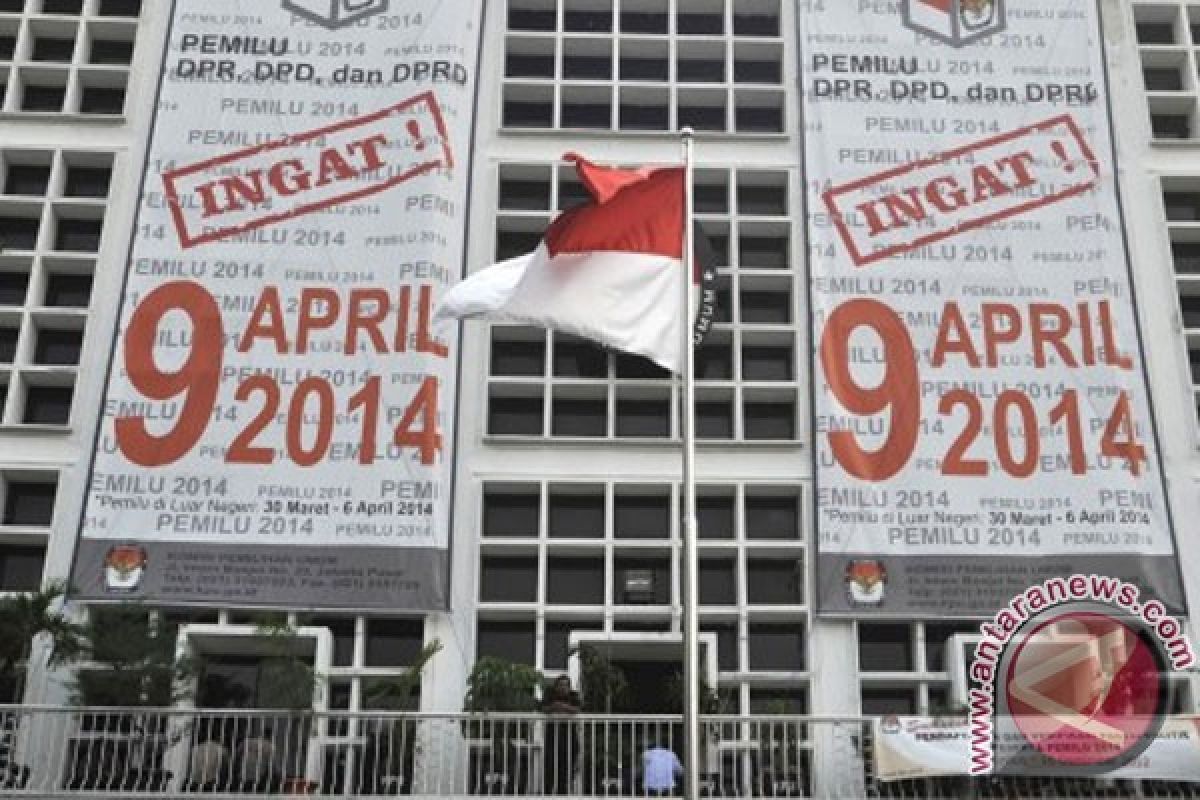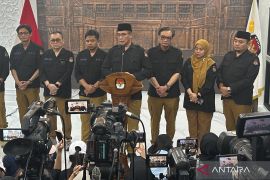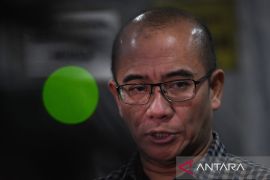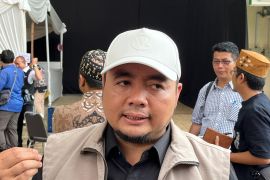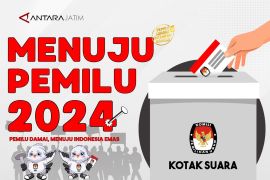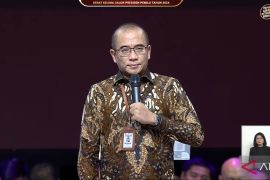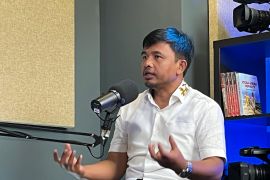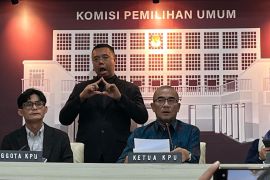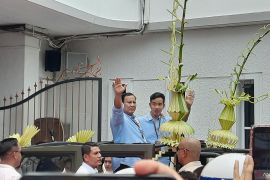"All of this must be done transparently."Jakarta (ANTARA News) - Ahead of the legislative and presidential elections next year, the Indonesian people are pinning their hopes on the General Elections Commission (KPU) for organization of transparent elections.
Transparency is key to the success of elections. In previous elections, many problems and electoral disputes surfaced due to suspicions of fraud and data manipulation.
"I am confident that all problems surrounding the general elections can be properly resolved if the KPU organizes the elections more openly," General Elections Supervisory Agency (Bawaslu) spokesperson Daniel Zuchron said.
Daniel pointed out that the KPU plays an administrative role during the elections. "It has laid out all the rules with regard to the administration process and the code of ethics. Therefore, everything should be reported to the KPU, and we will check in the field whether anything requires our confirmation," he stated.
The secretary general of the commission plays a crucial role in the management of KPU and the organisation of elections. Therefore, the KPU, which is looking for a new secretary general, should find a competent person.
According to a political scientist, the KPU must be able to organize more transparent elections under a new secretary general. "I hope that the next secretary general would be able to solve all problems facing the KPU, because political parties have often complained of transparency problems," said Ari Junaedi, from the University of Indonesia, here on Wednesday.
So, the new secretary general should understand all things relating to the elections as well as the role to be played by the KPU.
"The one who is appointed as the new secretary general should really understand all matters relating to the elections and the KPU so that she or he would be able to overcome the problems," Ari stated.
He said the new secretary general must have a deep understanding of every stage of the election process.
"So far, things have always gotten delayed and deadlines have been breached during the election process. This must be overcome with good time management," Ari pointed out.
"The KPU should also have a good administrative system because political parties have always complained of bad management by the election commission," he continued.
Ari said the new KPU secretary general would face many challenges "as things heat up in the run-up to the general elections in 2014".
"Like the CEO of a company, the new KPU secretary general must be able to cope with the problems faced by the commission. The biggest challenge is for it to take a neutral position while handling election disputes," he noted.
A total of nine nominees are now undergoing a series of tests in order to qualify to contest for the secretary general`s post.
According to KPU Commissioner Ferry Kurnia Rizkiansyah, the nine nominees are Muhammad Dimyati, Reifeldi, H.Syarifuddin Side, Resman, Yuhardi R Jusuf, Arif Rahman Hakim MS, Andi Pangerang Moenta, Noor Sidharta and Rizari.
Irrespective of who is elected, the people hope that the quality of the KPU will be better than that of the previous one.
However, Daniel expressed belief that the 2014 elections would be organized in a better way than previous elections.
"The KPU at the central level should be reinforced, because the commission is the centre of all elections activities. The KPU must improve its management procedures, starting with regulations, planning, and human resources," he stated.
Daniel pointed out that at the district and provincial levels, the KPU in the past had the same rules for circulars but implemented them differently.
"These things must be coordinated in order to achieve consistent implementation. It is the task of the Bawaslu to ensure that the same standard is implemented properly everywhere. There should not be a situation where supervision is tightened in one district but loosened in another, because it affects voters and documents," he stated.
"All of this must be done transparently, including the provision of accurate data on eligible voters," Daniel added.
Meanwhile, KPU commissioner Ferry Kurnia Rizkiansyah assured that data on eligible voters would be presented more accurately in the coming 2014 elections.
"We are now collecting data based on e-ID cards (electronic identity cards) system, so there would be no fictitious information in the coming general elections," he said.
Rizkiansyah pointed out that the data released by the Ministry of Home Affairs last year on November 7 was based on e-ID card system and showed that 172,426,571 eligible voters had been recorded.
"The KPU has already recorded 172,426,571 eligible voters for the next general elections in 2014," he noted.
Rizkiansyah said the KPU would identify military and police personnel who had no voting rights.
"Thus, the KPU now only needs to register people who have not yet been recorded in the e-ID card program, those who have just reached 17 years of age, those who are not yet 17 years old but are already married, as well as military and police personnel who are going to retire," he stated.
Ferry said the KPU hoped that the Indonesian people would help make the legislative and presidential elections in 2014 a success.
"We hope that the public would be proactive in checking their names and see whether they are already registered on the provisional voters list. It should not happen that they make a fuss only after the permanent list is already published," he added.
Meanwhile, the KPU, after due verification, has short-listed 10 political parties that can take part in the next general elections.
It decided to allow only ten of the 36 political parties to contest the upcoming general elections.
"The other 24 parties failed to meet the requirements," KPU chairman Husni Kamil Manik said on Tuesday.
The decision was made after an open plenary session of the commission.
"Revision of this decision is possible only if the Election Supervision Agency (Bawaslu), or State Administration High Court, or the Supreme Court advise so," he said.
The 10 political parties allowed to take part in the 2014 elections are Partai Amanat Nasional (National Mandate Party), Partai Demokrasi Indonesia Perjuangan (the Indonesian Democratic Party of Struggle), Partai Demokrat (Demoratic Party), Partai Gerakan Indonesia Raya (Great Indonesian Movement Party), Partai Golongan Karya (Golkar Party), Partai Hati Nurani Rakyat (People`s Conscience Party), Partai Keadilan Sejahtera (Prosperous Justice Party), Partai Kebangkitan Bangsa (National Awakening Party ), Partai Nasional Demokrat (National Democratic Party) and Partai Persatuan Pembangunan (United Development Party).
(T.A014/INE/KR-BSR/H-YH)
Reporter: by Andi Abdussalam
Editor: Priyambodo RH
Copyright © ANTARA 2013
